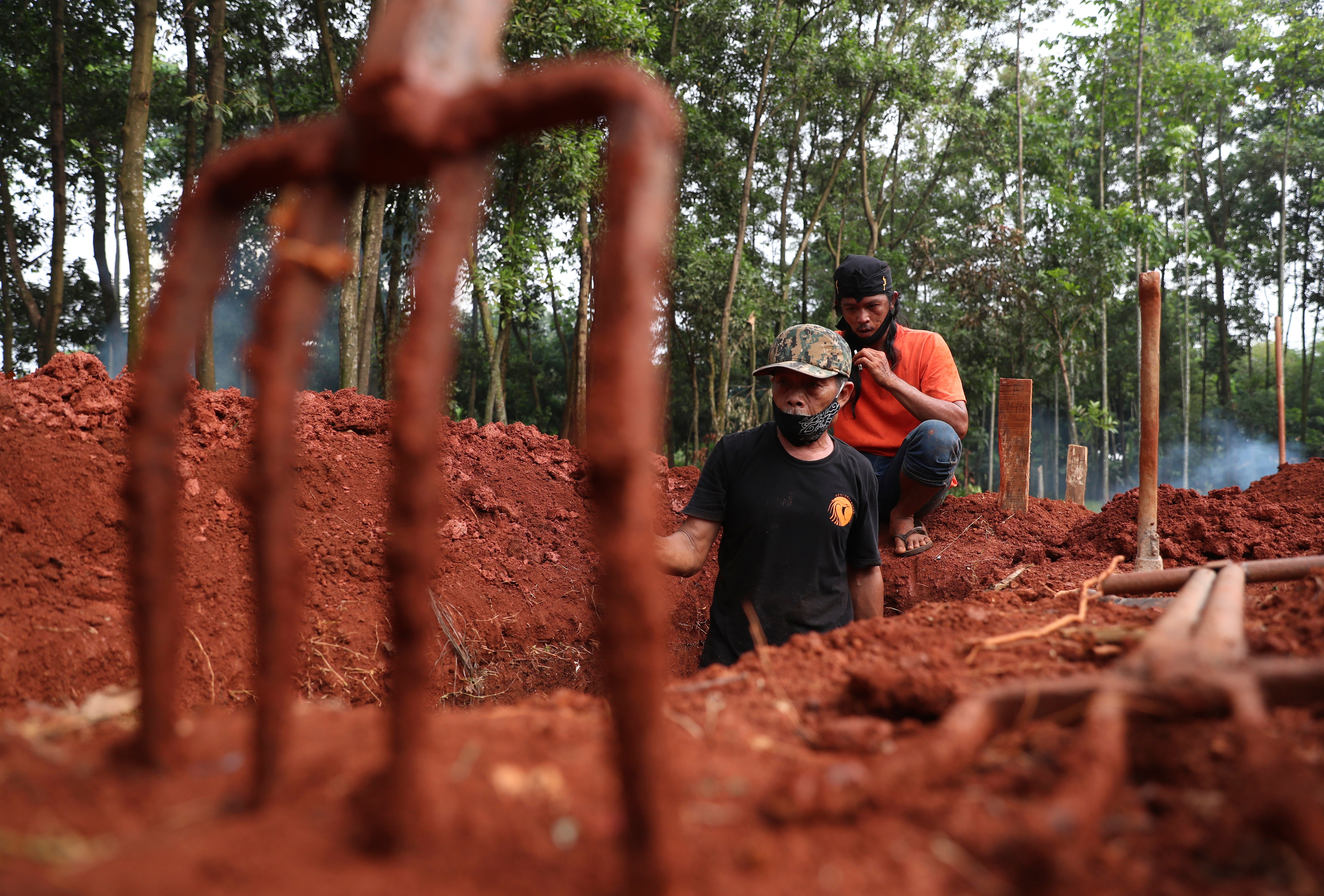AP PHOTOS: Volunteers help gravediggers in Indonesia

Your support helps us to tell the story
From reproductive rights to climate change to Big Tech, The Independent is on the ground when the story is developing. Whether it's investigating the financials of Elon Musk's pro-Trump PAC or producing our latest documentary, 'The A Word', which shines a light on the American women fighting for reproductive rights, we know how important it is to parse out the facts from the messaging.
At such a critical moment in US history, we need reporters on the ground. Your donation allows us to keep sending journalists to speak to both sides of the story.
The Independent is trusted by Americans across the entire political spectrum. And unlike many other quality news outlets, we choose not to lock Americans out of our reporting and analysis with paywalls. We believe quality journalism should be available to everyone, paid for by those who can afford it.
Your support makes all the difference.Wearing hazmat suits and masks, gravediggers at the Cipenjo Cemetery in Bogor on the outskirts of Jakarta say they've lost track of how many graves they dug. Despite working late into the night, the bodies of COVID-19 victims keep coming in hearses.
For the past two weeks, they've put into earth more than 10 bodies a day, up from two previously — a sign of a devastating surge ripping through the Southeast Asian nation, which is now Asia's hot spot with over 80,000 COVID-19 fatalities and more than 3 million confirmed cases since the beginning of the pandemic.
So they turned to volunteers to help them out.
“The relatives of the dead asked the community leaders for help to find gravediggers. Because it will be riskier if they wait for a long time at the cemetery," said Jaya Abidin, who answered the call with some of his neighbors.
They recently helped bury four residents from their neighborhood, who all died within a week.
Government figures show more than 1,000 people died each day for the past week, including a record 1,565 on Friday. The pace of vaccination remains slow, with only 6.3% fully vaccinated.
The volunteers use their own hoes and shovels brought from home. Other graveyards often use heavy machinery to meet the needs.
“It would be better, as the number of people who died keeps increasing, if the government can pay attention by lending digging equipment,” Abidin said.
Sometimes, he said, even with the gravediggers and volunteers working together, the line of bodies can stretch into the night.